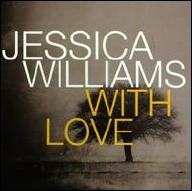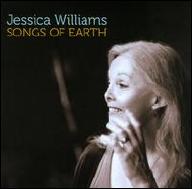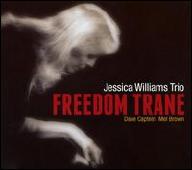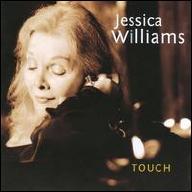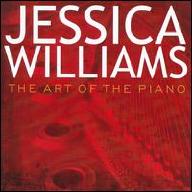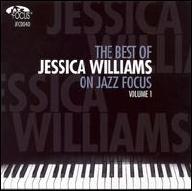Born in 1948 in Baltimore, Maryland, Williams started on piano at age four and took classical lessons at the Peabody Conservatory of Music. At age 12 she discovered jazz, listening intently to artists like Dave Brubeck, Miles Davis, John Coltrane, Bud Powell, and Charles Mingus. By her teens she was already an accomplished soloist and began taking gigs, playing locally and in Philadelphia with artists like Richie Cole, Buck Hill, and Mickey Fields. In the 1970s, she was a member of drummer Philly Joe Jones' quartet. It was during this period that Williams made her recorded debut as leader with 1976's Portal of Antrim, playing unaccompanied on piano and electric piano, and in a trio with bassist Mark Bradshaw and drummer Dave Tucker.
By the late '70s, Williams had moved to the West Coast. There, she landed a gig as the house pianist at San Francisco's Keystone Korner, leading her own groups and backing many artists, including Eddie Harris, Joe Morello, Stan Getz, Tony Williams, Airto Moreira, and more. In 1979, she released her third album, Orgonomic Music, which found her leading a septet featuring trumpeter Eddie Henderson and tenor saxophonist Jim Grantham, among others.
Though highly regarded during her early years in San Francisco, Williams remained largely unknown by the greater jazz public. This began to change in the '80s as she came into her own as a player releasing a stream of finely rendered albums, including 1980's Rivers of Memory and 1982's Update. She broke through to a wider audience with 1986's Nothin' But the Truth. A trio session with bassist John Wiitala and drummer Bud Spangler, it earned her a Grammy nomination. She also played on saxophonist Charlie Rouse's final album, 1988's Epistrophy.
Her work continued to earn critical acclaim throughout the '90s with albums like 1990's And Then, There's This!, 1993's Arrival, and 1997's Higher Standards. Williams also garnered yet more accolades, including receiving two grants from the National Endowment for the Arts, a Rockefeller Grant for composing, the Alice B. Toklas Grant for Women Composers, and the prestigious John Simon Guggenheim Memorial Foundation Fellowship. In 1997, she launched her own Red and Blue Recordings. She also started her JJW Music publishing company and began releasing albums on her own, including 1999's It's Jessica's Time and 1999's Some Ballads, Some Blues.
In 2002, Williams released This Side Up, the first of several finely rendered albums for the Maxjazz label. A trio album with drummer Victor Lewis and bassist Ray Drummond, it reached 24 on Billboard's Traditional Jazz Albums chart. She also earned a second Grammy nomination for her 2004 concert album Live at Yoshi's, Vol. 1. Williams kept a busy live schedule during this period, performing at the 2004 and 2006 Mary Lou Williams Women in Jazz Festival, as well as appearing at various times at the Monterey Jazz Festival and the Bern Jazz Festival, among many other venues around the globe. Beginning with 2006's Billy's Theme: A Tribute to Dr. Billy Taylor, she released a handful of albums for Origin Records. A solo piano album of her original compositions, Songs for a New Century, arrived in 2006, followed by 2009's The Art of the Piano, 2010's Touch, and 2011's Freedom Trane, the latter of which found her exploring the music of John Coltrane in a trio with bassist Dave Captein and drummer Mel Brown.
Songs of Earth, a compilation of live performances recorded at Seattle's Triple Door club, arrived in 2012. That same year, Williams underwent a spinal fusion back surgery that took her away from performing for two years. Based in the Pacific Northwest, she continued to work on music at her home, expanding her jazz with electronic and classical explorations. In 2014, she returned to the spotlight with a solo piano album of jazz standards, With Love. Jessica Williams died on March 12, 2022, at the age of 73. ~ Matt Collar, Rovi


